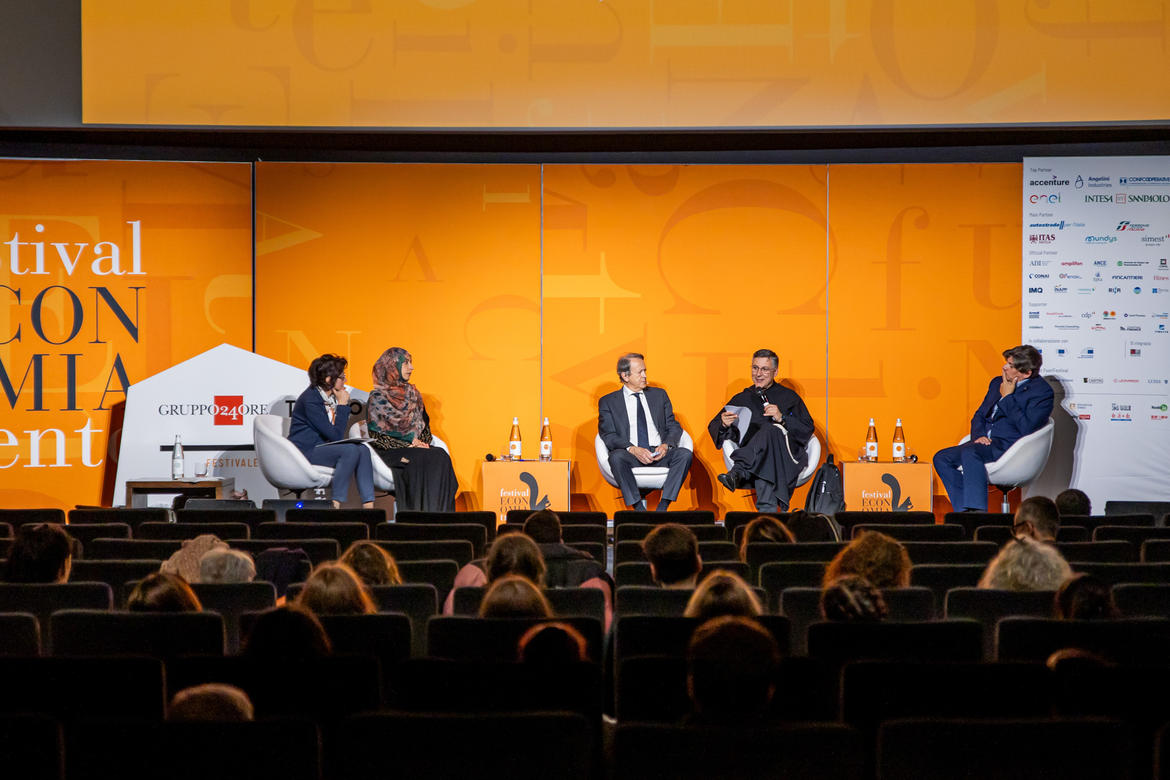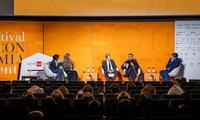
During the first event, considerations about wars and their impact on the economy and the lives of people and children have been debated. “Within the past 10-15 years, there has been a tremendous change: Wars have become a tool to solve conflicts, and not the result of a conflict” introduced Fabio Tamburini, director of Il Sole 24 Ore. Father Enzo Fortunato, added reflections about creating a child-friendly environment – which embraces the idea of the household but also society as a whole. According to him, “Children today are not born happy; they are born to be victims of wars, but also of poverty. They have become an instrument to use to blackmail states. Yes, in wars, the economy grows. Yet, we are speaking about earning money on weapons that kill. Is this economy leading to life or death?”. Enzo Cursio added reflections on how the current system has created a stable peace in Europe. Yet worldwide, “90% of the world’s wealth is in the hands of eight people. And there is no room for hope. Can children be happy in this situation? Obviously not. Children are twice as victims because they also do not have a voice”. Nobel Peace Laureate Tawakkol Karman expressed the same worries: in her words, the battle for freedom and equality has begun before winning the price and has continued afterwards. “It is time to work together to stop wars, poverty, and abuses. I am discussing all conflicts, e.g., Palestine, Ukraine, and Russia. And we need to tell our children that those responsible will be punished. And here, I would take the chance to salute the International Criminal Court for asking to prosecute leaders in the Israeli-Palestine conflict”, she stated.
In her view, conflicts should be prevented by acting on the root causes, namely dictatorships and occupations. She continued: “War is at the door. The nuclear danger is real and very dangerous. What about the next generations? Dictators should not win the battle; they cannot be ignored. Don’t think you are far away. No, you are witnessing what is happening. It is imperative to see that the War in any other country is the War against us. It is not an internal affair; it’s an international affair. We should consider every War as our War and stop it”.
During the second event, titled “My journey between economic ideas and theories”, Nobel Laureate in Economics Edmund Phelps narrates his 60-year journey within the economic field – focusing on different decisions he made throughout his career, eventually leading to the grounding of new theories. This was the case, for instance, as to how he saw innovation: in his view, this depended on people starting from scratch, i.e., ordinary people working within the economic system in many different companies. These people also come up with ideas on how and what to produce. “I thought engaging many people using their creativity to innovate the production process and the products themselves was important; it demonstrated how creativity and innovation were everywhere. If we look at history, very few societies were capable of that. This new thinking derived from a new thought, from modern values”. Several other thoughts and ideas emerged from here, leading to new findings.
The next Nobel Laureate on stage at the Trento Festival of Economics will be James Heckman, who will participate in “How the Welfare State Affects Inequality and Social Mobility” on Saturday, 25th May, at Cinema Vittoria.
The complete program is available online at www.festivaleconomia.it








